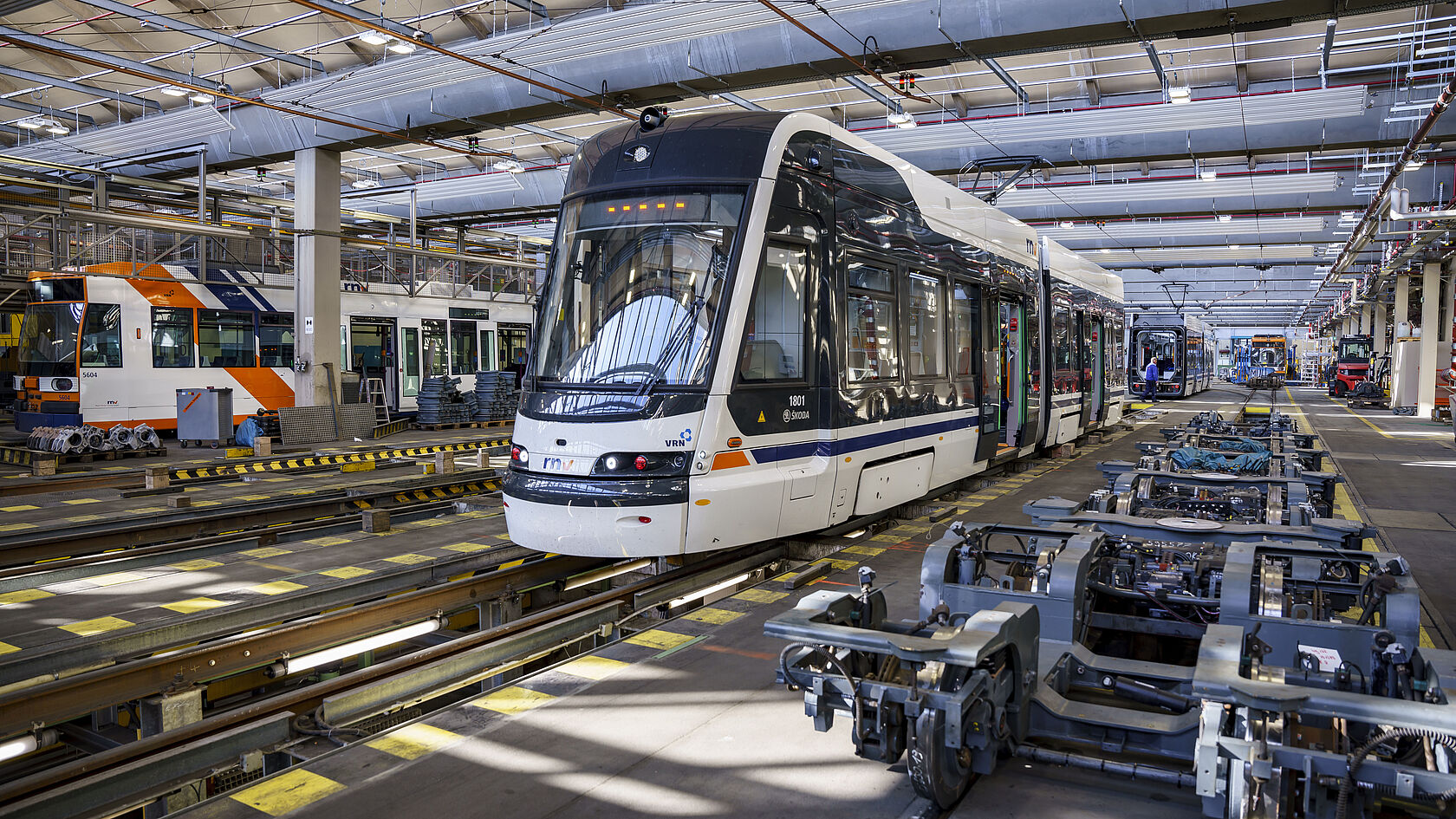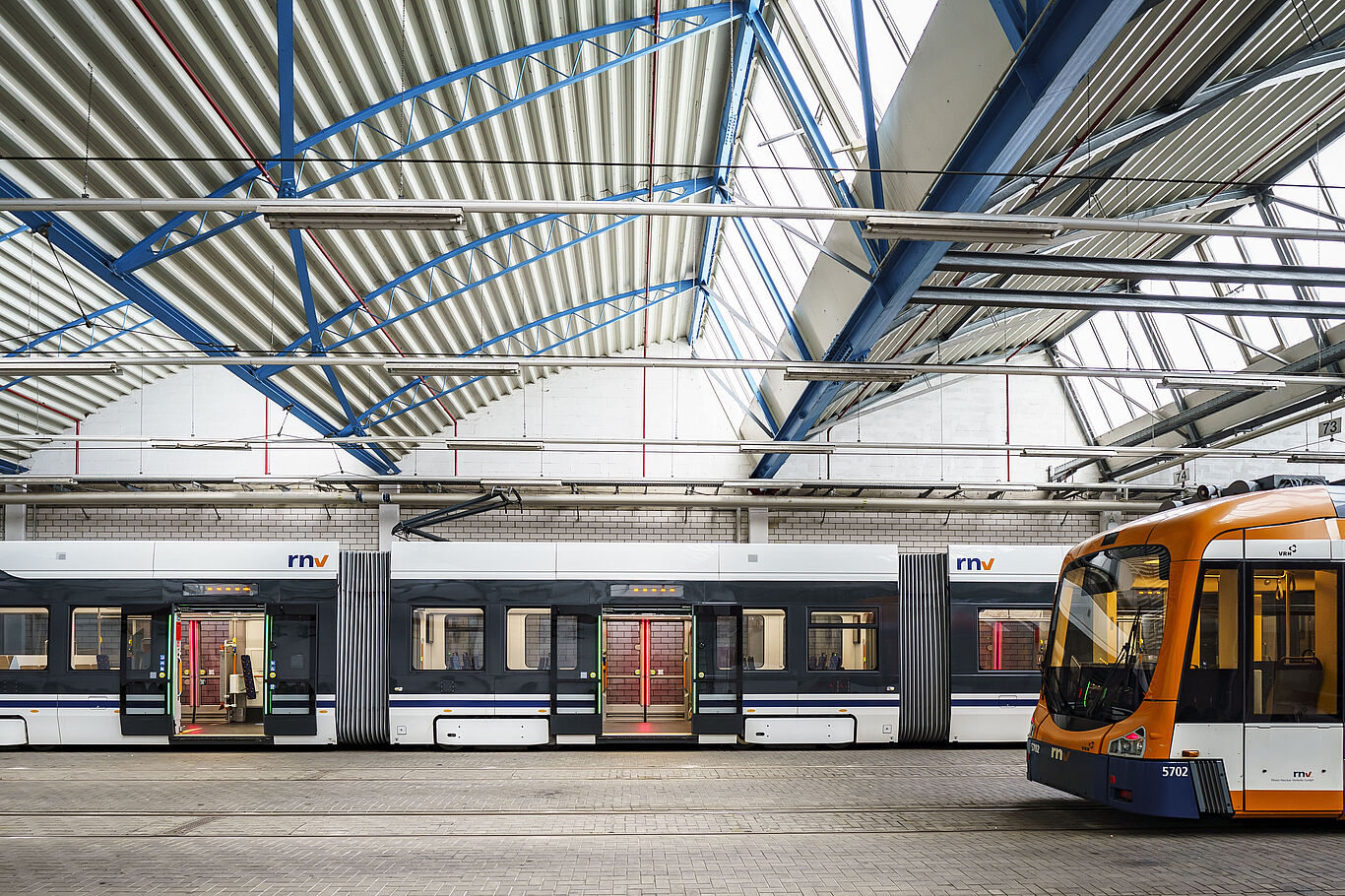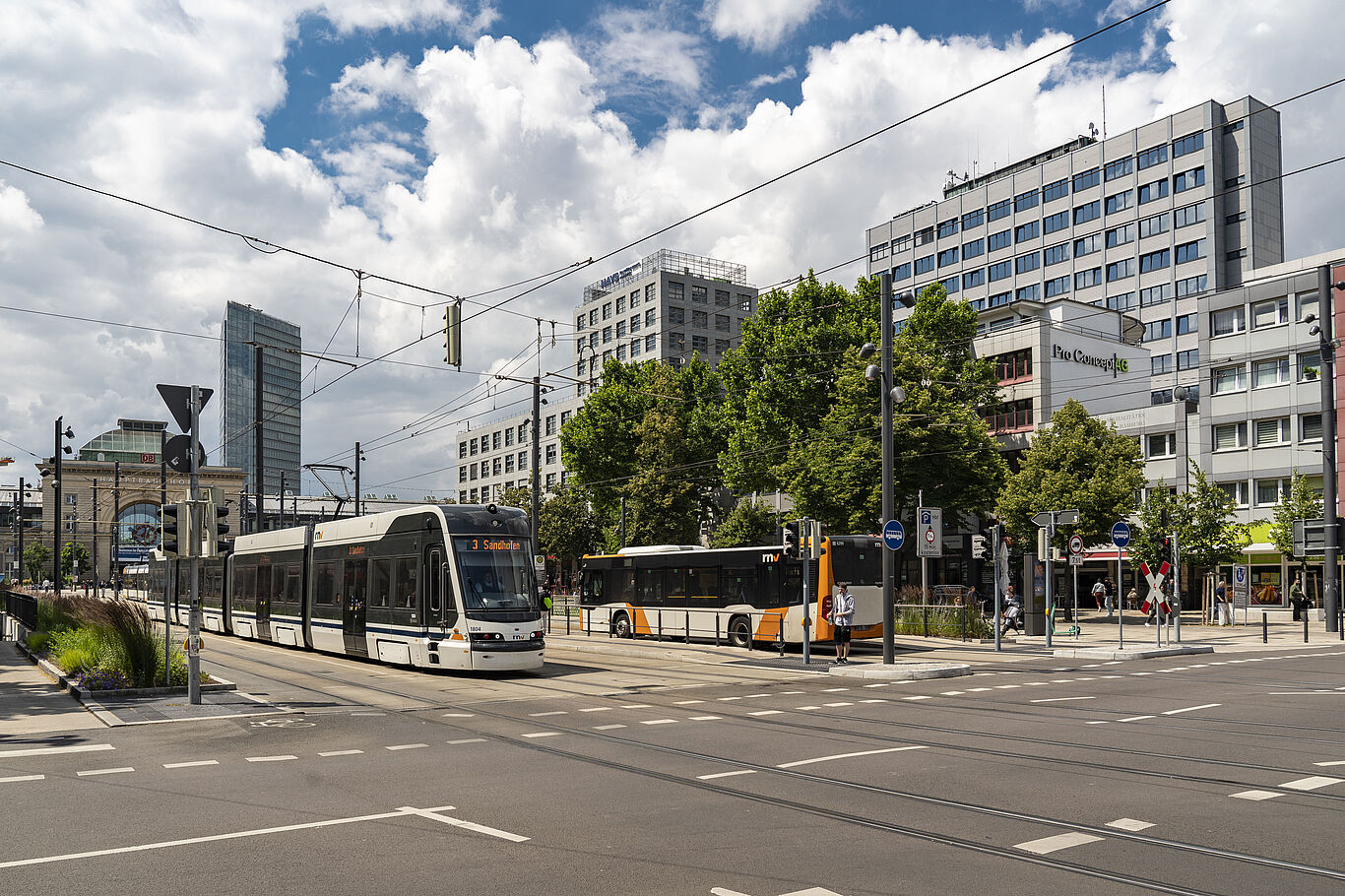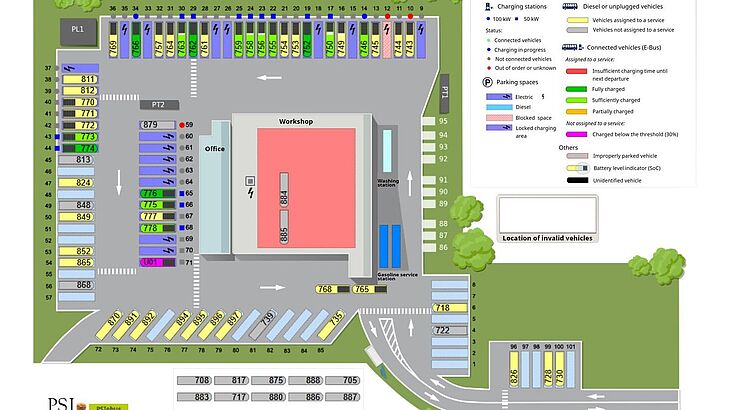
Case Study Rhein-Neckar-Verkehr revolutionizes its vehicle scheduling
With the introduction of PSItraffic/DMS, Rhein-Neckar-Verkehr GmbH (rnv) optimizes its operational processes and successfully meets the challenges of the future.
Like many other transport companies, Rhein-Neckar-Verkehr GmbH (rnv) is facing major challenges: expanding public transport, decarbonization and digitization. By implementing the digital PSItraffic/DMS, rnv has taken an important step towards the future.
The Rhein-Neckar-Verkehr GmbH (rnv)
Rhein-Neckar-Verkehr GmbH (rnv) is a major player in the German public transport sector. As an association of five transport companies, rnv serves three major conurbations with its extensive one-meter gauge network: Mannheim, Heidelberg and Ludwigshafen. With over 450 vehicles and half a million passengers a day, rnv plays a central role in the region's mobility. The company places great emphasis on sustainability and already relies to a large extent on green electricity for its fleet and infrastructure.
work at the rnv
line length
Challenges

Complex operating procedures and increasing requirements
The rnv was faced with the challenge of optimizing its vehicle scheduling in the face of growing complexity. The previous analog methods had reached their limits, especially due to the merging of various transport companies, the increasing demands on efficiency and cost management, and the switch to electric buses, which required individual consideration of charging states and ranges in the planning. The growing fleet, the expanded route network, several depots and the integration of various transport companies overtaxed the previous analog scheduling methods.
Objectives
The rnv had the clear goal of centralizing and digitizing its vehicle scheduling. This was intended to optimize processes, increase efficiency and reduce costs. At the same time, the company wants to be prepared for future developments, such as autonomous driving.
Efficient and future-oriented vehicle scheduling
The rnv was looking for a comprehensive transformation of its vehicle scheduling. The company was seeking a solution that would enable the cross-location coordination of all operational processes and the central and consistent control of vehicle scheduling. By digitizing these processes, rnv hoped to significantly increase efficiency: manual work steps were to be automated, sources of error minimized and the entire planning process made more flexible in order to be able to react more quickly to unforeseen events.

Solution approach
To achieve these goals, rnv decided to implement the depot management system PSItraffic/DMS. This software solution enables the cross-location coordination of operational processes and centralized vehicle scheduling that is available around the clock.
PSItraffic/DMS – the depot management system
PSItraffic/DMS offers a comprehensive solution for the challenges faced by rnv. The system integrates workshop processes, fault management and vehicle scheduling, thus enabling the holistic control of operational processes. By taking into account individual charging states and ranges when scheduling e-buses, optimal energy utilization is ensured.
The result
The introduction of PSItraffic/DMS has led to a significant improvement in operational processes at rnv. The workshop supply has been optimized, fault management has been made more efficient and energy use in the e-buses has been improved.
Optimized operating processes and increased efficiency
By integrating workshop processes into PSItraffic/DMS, faults can be reported directly via tablets and recorded in the system. The workshop immediately checks whether immediate repair is necessary and the system updates the planning in real time. The vehicle scheduling has also been optimized by taking into account individual loading conditions and ranges. This has enabled rnv to make its operating processes significantly more efficient and save costs.
It has to be said that much of what has to do with the development of our company would not be possible without the E-DMS. This applies in particular to our newly planned depots and support for autonomous driving.
The rnv has benefited from PSItraffic/DMS
- Centralized vehicle scheduling: Enables the coordination of operational processes across multiple locations, thereby reducing costs.
- Increased efficiency and reduced costs: Centralizing vehicle scheduling frees up valuable capacity for other tasks.
- Improved fault management: Faults are detected and rectified more quickly, ensuring that the vehicles run on time.
- More efficient workshop management: The integration of workshop processes into the depot management system leads to greater transparency and better utilization of resources.
- Intelligent circulation assignment: The system takes into account the individual charging statuses of the electric buses and enables improved energy utilization.
- Automated parking space assignment: The system identifies the most suitable parking space and enables efficient use of the available space.
- Future-proof: The system is the basis for the introduction of autonomous driving and supports the goal of climate neutrality by 2032.
Conclusion
With the introduction of the PSItraffic/DMS, rnv has taken an important step towards the future. The company is now well equipped to meet the challenges of modern public transport and to achieve its ambitious goals, such as climate neutrality by 2032.
PSItraffic has proven to be a reliable and flexible solution that takes both current requirements and future developments into account. The Rhein-Neckar-Verkehr benefits from more efficient vehicle scheduling, optimized operating procedures and improved energy utilization.
The system thus forms an important foundation for innovative and sustainable mobility in the region.


